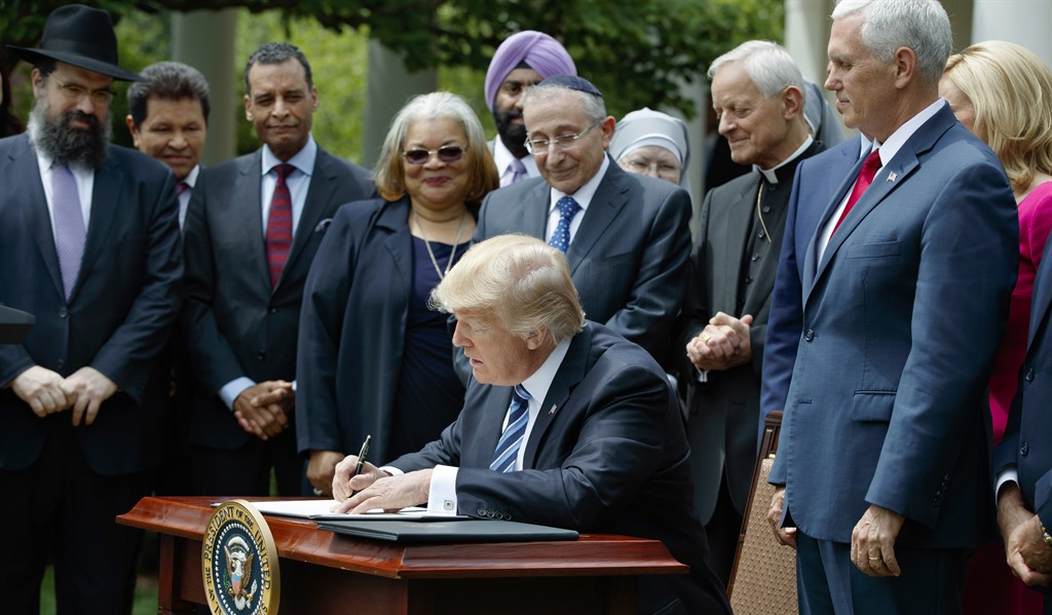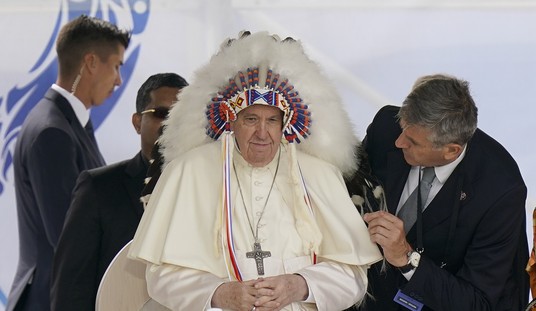One party insists that voter fraud creates a significant enough problem to warrant new laws requiring identification at the polls. The other insists that voter fraud is a figment of the other’s imagination. A new bipartisan commission could settle the question, and its launch by Donald Trump in an executive order yesterday fulfills a major campaign pledge:
The commission will be chaired by Vice President Mike Pence, and Kansas Secretary of State Kris Kobach will serve as vice chair, the White House announced during Thursday’s press briefing.
It will “study the registration and voting processes used in Federal elections” as well as “fraudulent voter registrations and fraudulent voting,” the order says.
Lawmakers from both parties will be on the commission, which will be tasked with studying practices and policies “that undermine the American people’s confidence in the integrity of the voting processes used in Federal elections,” according to the text of the executive order.
The commission will be charged with reviewing Trump’s allegations that millions of people voted illegally in the 2016 election.
That will certainly be the initial focus of the commission, and Kobach might especially have reason to push that angle. Kobach alleged that over a million fraudulent votes were cast in the 2016 election. That would still be less than the “millions” Trump claims, and would be fewer than 1% of the overall vote. Depending on where those votes got cast, though, it could have been enough to impact the election, even if not the popular vote, as Trump claims. Several states only got decided by fewer than 100,000 votes, including all of the so-called “blue wall” states that went to Trump.
The critics are already calling the commission a “sham” before it even gets started, according to the Washington Post:
Michael Waldman, president of the Brennan Center for Justice, called the commission “a sham and distraction,” alleging that Trump was trying “to pivot” from the firestorm that followed his firing of Comey while the FBI chief was leading an investigation into Russian meddling in the 2016 election.
“He fired the person investigating a real threat to election integrity and set up a probe of an imaginary threat,” Waldman said.
League of Women Voters President Chris Carson said, “The real purpose of this effort is to justify President Trump’s false claims of widespread voter fraud in the 2016 elections.” She said the commission was being filled with “political ideologues with dangerous agendas.”
In a statement before Trump signed his order, New York Attorney General Eric T. Schneiderman (D) said that “no matter how many times President Trump claims otherwise, voter fraud is an imaginary problem.” Schneiderman said his office found no substantiated claims of voter fraud in New York last year.
If all this commission does is focus on the narrow complaints from Trump and Kobach about the 2016 election, then it’s not likely to improve the debate. However, there is plenty of potential for a bipartisan commission to study this outside the context of a single election, or in the context of any particular outcome. They could start by reviewing voting systems in other advanced Western nations, which usually require some sort of identification at the polling station, and probe the weaknesses in both the registration and counting mechanisms in the systems used by the states. Security analyses don’t start with an assumption of inviolability, but with a probe of potential failure points and how to best defend against them.
The question of election fraud has dogged American politics for a long time. Rather than attempt to validate past claims on both sides, we now have an opportunity to take a fresh look at the reality of threats to reliable election processes, if they exist. Let’s hope that the commission takes the longer view and engages in a serious effort to research the issue, present an honest and balanced picture of the status quo, and offers realistic and effective measures for states to implement to secure the voting process.








Join the conversation as a VIP Member